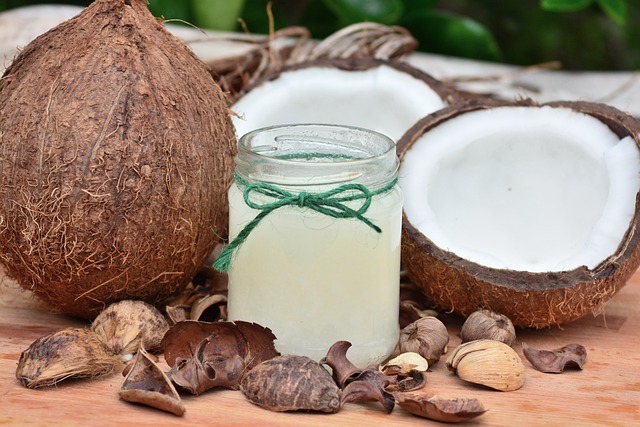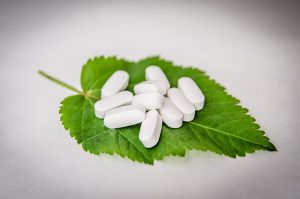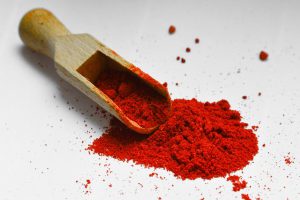
Does Oil Pulling Work? Unveiling Its Effectiveness and Health Benefits.
Nov 30, 2023
Embarking on the journey of alternative health practices, oil pulling emerges as a time-honoured technique rooted in Ayurvedic wisdom. Dating back centuries, this method intertwines oral care and detoxification, raising the question: Does oil pulling truly work? Delve into the realms of this ancient practice, unravelling its history, process, and the potential benefits and drawbacks it brings to the forefront.
Oil pulling, a ritual with origins in Ayurvedic medicine, entails the rhythmic swishing of oil in the mouth for a designated duration. This practice, steeped in tradition, sparks curiosity in the modern quest for holistic well-being. Let’s navigate the intricacies of oil pulling, discerning its efficacy and the health advantages it potentially bestows upon those who incorporate it into their wellness routines.
What is Oil Pulling?
Oil pulling, deeply rooted in ancient wisdom, is a ritualistic approach to oral hygiene that takes it beyond the mundane. This therapeutic practice involves swishing a specific type of oil in the mouth for a stipulated period, usually 15 to 20 minutes. Its resurgence in popularity has brought this age-old technique, originating from the esteemed Ayurvedic medicine, to the forefront. This holistic approach to health and wellness, with a history spanning thousands of years, hails from India and has since spread across the globe.
Historically, the oils commonly used in this practice were sesame or sunflower. These choices were deeply ingrained in centuries-old Ayurvedic customs. However, as the practice has transcended cultural boundaries, coconut oil has emerged as a favoured alternative. Its palatable taste and myriad potential health benefits have solidified its position in the oil-pulling ritual.
The heart of oil pulling lies in the rhythmic motion of swishing oil in your mouth. This action creates a dynamic environment, allowing the oil’s unique properties to interact with your saliva, setting the stage for a harmonious detoxifying process.
As the oil is swished around, it acts as a magnet for toxins and impurities in the mouth, trapping them within its viscous confines. Throughout the routine, the oil’s texture may subtly transform, becoming lighter and frothier as it interacts with the oral environment.
Bridging the gap between traditional wisdom and modern wellness trends, oil pulling sparks curiosity and encourages exploration. It’s a practice that transcends borders, captivating those pursuing a holistic approach to oral health. With a rich historical tapestry woven through time and the potential for tangible health benefits, oil pulling remains a fascinating facet of Ayurvedic wisdom in the modern century. Its steady rise in popularity testifies to the enduring power of ancient practices in our contemporary world.
How Does Oil Pulling Work?
The mechanics of oil pulling are as simple as they are intriguing, offering a holistic approach to oral hygiene that has piqued the interest of health-conscious individuals worldwide. The process, steeped in tradition and ancient wisdom, involves a specific routine that unfolds every morning, ideally before consuming food or beverages. Let’s dive deeper into how this centuries-old practice works its magic.
To embark on your oil-pulling journey, you’ll need a tablespoon of your chosen oil, typically coconut oil or sesame oil. This oil serves as the primary agent of change during the process. Upon rising, on an empty stomach, take that tablespoon of oil and place it in your mouth.
As you begin to swish the oil around your oral cavity, an alchemical reaction of sorts begins. The oil interfaces with your saliva, creating a dynamic environment that interacts with oral microbes, impurities, and toxins. It’s within this swirling amalgamation that the oil’s true potential is unleashed. Over the course of the recommended time, usually about 15-20 minutes, the oil’s texture may undergo a subtle transformation. It might start thick and viscous, but as it interacts with the contents of your mouth, it could become thinner and even frothy.
Once the prescribed swishing period has elapsed, it’s time to release the oil and all the potential contaminants it has captured. Spit the oil into the trash, not the sink, as the oil could solidify and cause plumbing issues if disposed of there. Following this, rinse your mouth thoroughly with warm water to remove any residual oil, and then proceed to your regular tooth-brushing routine.
Proponents of oil pulling as an oral health regimen extol its potential benefits, and these claims encompass an array of mouth-related issues. Some advocates assert that oil pulling can effectively reduce plaque, combat gingivitis, and alleviate the problem of persistent bad breath. Beyond these, the more adventurous proponents even suggest that oil pulling can contribute to teeth whitening and, in some cases, serve as a detoxification aid.
While these assertions have sparked enthusiasm, it’s important to note that scientific consensus is yet to definitively confirm these claims. The journey of oil pulling, with its blend of tradition and innovation, continues to fascinate both those seeking natural remedies and the curious minds in the realm of health and wellness.
Does Oil Pulling Work for Teeth Whitening?
Oil pulling, a centuries-old practice rooted in Ayurvedic tradition, has garnered attention for its potential benefits beyond oral hygiene. One such claim is its ability to whiten teeth naturally. Proponents of oil pulling swear by its effectiveness in removing stains and leaving behind a brighter, more radiant smile. However, when it comes to scientific substantiation, the evidence is somewhat elusive.
The anecdotal experiences of individuals who have incorporated oil pulling into their oral care routines are mixed. Some report notable improvements in the color and luster of their teeth, while others remain skeptical, seeing little to no significant change. In this ongoing quest to uncover the truth about oil pulling’s role in teeth whitening, it is crucial to acknowledge the scarcity of empirical research on this particular facet of the practice.
Advocates of oil pulling for teeth whitening attribute its potential benefits to the oil’s capacity to draw out impurities and stains. The swishing action, typically performed with coconut oil or sesame oil, is believed to capture and remove these dental blemishes, resulting in a visibly brighter smile. However, the extent to which this ancient technique can rival modern teeth whitening treatments remains a subject of intrigue and debate.
The scarcity of scientific studies examining oil pulling’s teeth whitening effects leaves room for uncertainty. While some individuals may observe a transformation in the shade of their teeth, it is essential to recognize that this could be influenced by various factors, including diet, oral hygiene practices, and individual variations in response to oil pulling.
To gain a more comprehensive understanding of the potential teeth whitening effects of oil pulling, researchers need to delve deeper into this uncharted territory. Rigorous scientific investigations, larger sample sizes, and controlled studies are necessary to provide more concrete insights into whether oil pulling can indeed be considered a viable natural method for teeth whitening.
As we delve further into this intriguing aspect of oil pulling, it’s important to approach the subject with an open mind, recognizing the need for more research to draw definitive conclusions. The quest for a gleaming smile through oil pulling continues, but for now, the evidence remains anecdotal, leaving us with both uncertainty and hope regarding its potential as a teeth whitening method.
Does Oil Pulling Work for Detoxification?
The concept of detoxification has long been intertwined with the allure of wellness practices, and oil pulling is no exception. Proponents of oil pulling have, over time, extolled its potential to rid the body of toxins, heralding it as a holistic path to enhanced well-being. However, this perspective is enshrouded in a web of beliefs and has yet to find strong scientific substantiation.
At the core of the detoxification claims surrounding oil pulling is the notion that this oral ritual can serve as a conduit for removing harmful substances from the body. Advocates argue that, as the oil circulates in the mouth, it captures and binds toxins, rendering them harmless and facilitating their expulsion from the body. The process is believed to enhance overall health and well-being by lightening the body’s toxic burden.
While these claims exude a certain mystique, it’s crucial to note that the realm of detoxification is a complex and multifaceted domain. The human body boasts an intricate detoxification system, primarily orchestrated by the liver and kidneys. These vital organs are adept at neutralizing and eliminating toxins from the body, and they operate with a degree of precision honed over millions of years of evolution.
In light of this intricate biological process, questions naturally arise regarding the role of oil pulling in detoxification. Is it a supportive player, a passive observer, or perhaps a mere bystander? To date, there remains a paucity of concrete scientific evidence to support the notion that oil pulling significantly contributes to the detoxification process.
The allure of detoxification and the quest for a cleaner, healthier body continue to fuel interest in oil pulling as a holistic wellness practice. However, the discerning individual should consider that while oil pulling may offer other potential benefits, its role in detoxification remains an intriguing but uncharted territory, awaiting more rigorous scientific exploration. As we continue to explore the multifaceted world of oil pulling, the detoxification aspect remains a topic of both curiosity and contemplation.
Oil Pulling and Bad Breath
Among the many claims made about the potential benefits of oil pulling, one stands out as a particularly appealing prospect – its ability to tackle the pesky issue of bad breath. By targeting the root cause, which often involves the proliferation of odor-producing bacteria, oil pulling has gained a reputation as a natural remedy to alleviate this common concern. While it has earned praise from numerous individuals who attest to experiencing a noticeable improvement in their breath, it’s crucial to understand that results in this regard can be as diverse as the individuals who practice it.
Bad breath, or halitosis, is a condition that can be attributed to various factors, with oral bacteria playing a significant role. These microorganisms, residing in the mouth, produce sulfur compounds that contribute to unpleasant odors. Oil pulling, by its very nature, engages in a process that reduces the population of these odor-causing bacteria.
As the oil is swished within the oral cavity, it functions as a magnet, capturing and entrapping these bacteria. Over time, this process can lead to a reduction in the bacterial load, potentially resulting in a more pleasant breath. For those who have incorporated oil pulling into their daily routine, the anecdotal reports are often promising, with many individuals claiming a significant and lasting improvement in their oral odor.
However, it’s important to recognize that individual experiences with oil pulling and its impact on bad breath can vary. Factors such as the underlying cause of bad breath, the consistency of oil pulling, and personal oral hygiene practices can influence the results. In this multifaceted journey to better oral health, oil pulling emerges as a potential tool in the arsenal against bad breath, offering a natural and holistic approach to a common concern.
Oil Pulling vs. Traditional Dental Care
n the world of oral health, the age-old practice of oil pulling often finds itself in a delicate balance with traditional dental care. While oil pulling has garnered attention for its potential benefits, it’s essential to underscore that it should not supplant time-tested dental hygiene routines. Instead, it can serve as a complementary element in your overall oral care strategy.
Brushing and flossing remain the cornerstones of conventional dental care, and they are indispensable for maintaining a clean and healthy mouth. These practices effectively remove food particles, plaque, and prevent the formation of cavities. Regular dental check-ups, where professionals can assess your oral health, are also critical for catching and addressing issues in their early stages.
Oil pulling, on the other hand, introduces a different dimension to your oral care routine. As you swish oil within your mouth, it engages in a unique dance with oral microbes and impurities. Proponents believe this process can contribute to various aspects of oral health, including reduced plaque, improved gum health, and fresher breath. It’s like a holistic, time-honored supplement to the contemporary approach of brushing and flossing.
However, it’s important to strike a balance. Oil pulling should not be seen as a standalone solution for dental hygiene. Instead, it can be integrated as an additional layer of care that complements the more conventional practices. The key is to embrace a holistic approach that combines the benefits of oil pulling with the rigor of traditional dental care to achieve optimal oral health.
As you navigate the dynamic landscape of oral care, it’s vital to recognize the synergy between oil pulling and conventional dental practices. Each element has its role to play, and when they work in harmony, they can contribute to a healthier, more radiant smile. The path to well-rounded oral health lies in embracing the best of both worlds, fusing tradition and innovation for the benefit of your teeth and gums.
How to Do Oil Pulling
To start oil pulling, follow these steps:
- Choose your oil (coconut oil is a popular choice).
- Take one tablespoon of the oil and swish it in your mouth for 15-20 minutes.
- Spit the oil into the trash to prevent clogging your sink.
- Rinse your mouth thoroughly with warm water.
- Brush your teeth as usual.
Oil Pulling and Ayurveda
In the vast tapestry of Ayurvedic medicine, oil pulling emerges as a thread intricately woven into the holistic fabric of well-being. Within this ancient system of healing that dates back thousands of years, oil pulling holds a special place, offering insights into the delicate balance of the body’s doshas, particularly the Kapha dosha.
Ayurveda, often referred to as the “science of life,” is a comprehensive system that seeks to harmonize the body, mind, and spirit. It acknowledges that each individual has a unique constitution, or Prakriti, determined by the interplay of the three doshas: Vata, Pitta, and Kapha. These doshas represent various elemental qualities and are in a perpetual state of flux.
Oil pulling, in this context, is seen as a practice that can contribute to equilibrium within the Kapha dosha, which is associated with qualities like earth and water. An imbalance in the Kapha dosha can manifest as sluggishness, congestion, and a sense of heaviness. Oil pulling, with its cleansing and purifying action, is believed to counteract these imbalances.
This practice, deeply rooted in ancient traditions, embodies the holistic approach of Ayurveda. It is considered a valuable component of daily routines aimed at promoting overall health. The act of swishing oil within the mouth is more than a physical ritual; it’s a step towards aligning the body’s energies and finding a state of equilibrium that resonates with the principles of Ayurvedic well-being.
In the journey towards holistic health, oil pulling’s place in Ayurveda is a testament to the enduring wisdom of ancient practices. It reminds us that, beyond the tangible benefits, there is a profound connection between the physical and the metaphysical, and that oil pulling is a bridge that unites the two in the pursuit of well-being.
Oil Pulling and Modern Dentistry
While oil pulling has gained popularity in recent years, it’s essential to consult with your dentist before making it a part of your oral care routine. Dental professionals have varying opinions about oil pulling, but many suggest it can be a useful addition to traditional dental care practices.
Potential Side Effects
Though rare, some individuals may experience adverse reactions to oil pulling. These can include upset stomach, lipoid pneumonia (if the oil is accidentally inhaled), or an allergic reaction. If you experience any discomfort, discontinue the practice and consult a healthcare professional.
What Do Experts Say?
In the world of oral health, expert opinions on oil pulling resemble a rich tapestry woven with varied threads of insight and experience. While some dental professionals acknowledge its potential benefits, others approach it with caution. The consensus among experts leans toward regarding oil pulling as a supplementary practice that should walk hand-in-hand with established dental routines, rather than a replacement.
Oil pulling’s proponents laud its holistic approach to oral health. They see it as a practice that can contribute to a cleaner mouth, fresher breath, and healthier gums. In their view, the natural action of oil drawing out impurities from the oral cavity can offer tangible benefits. These proponents often hail the practice as an Ayurvedic gem that complements modern dental care.
Conversely, skeptics within the dental community may remain wary, noting the limited scientific evidence regarding oil pulling’s effectiveness in isolation. They emphasize that brushing, flossing, and regular dental check-ups remain the bedrock of oral hygiene, with proven results in preventing cavities and maintaining gum health.
The dynamic interchange of perspectives between experts underscores the complex and evolving nature of oral care. It’s a field where tradition meets innovation, and where oil pulling, rooted in ancient wisdom, finds its place alongside modern dental practices. As individuals continue to explore the diverse terrain of oral health, they are encouraged to navigate the wealth of opinions, considering oil pulling as a piece in the intricate puzzle of oral well-being, a complement rather than a replacement in the grand mosaic of dental care.
Conclusion
In the realm of oral health, oil pulling stands as an intriguing enigma, weaving together the threads of ancient wisdom and modern curiosity. This age-old practice, deeply rooted in tradition, has found a growing fan base due to its potential to transform oral well-being. Its advocates sing praises of its ability to whiten teeth, battle bad breath, and bolster overall oral hygiene. However, as we tread the path of exploration, it becomes evident that we are still traversing uncharted territories, and scientific evidence remains somewhat scarce.
Oil pulling’s impact on teeth whitening has sparked intrigue. The belief that the swishing action can captivate dental impurities and reveal a brighter smile is a tantalizing notion. While anecdotal reports of success abound, the scientific verdict remains elusive, leaving us to ponder the true extent of its teeth-whitening prowess.
Akin to a breath of fresh air, the potential to combat bad breath through oil pulling has captured the imagination of many. The mechanism by which oil pulling reduces the bacterial load in the mouth gives hope to those seeking a natural solution for a fresher exhale. Yet, as we navigate these uncharted waters, the scientific validations remain a work in progress.
In the intricate web of oral hygiene, oil pulling emerges as a piece of the puzzle, not the entirety of the picture. As we delve deeper, it’s clear that this ancient practice should be seen as a complementary facet, working in harmony with established dental routines. Consultation with dental professionals is paramount to ensure a holistic approach to oral health.
As we conclude this journey of exploration, we stand on the precipice of discovery, eyes fixed on the horizon where tradition and science converge. The realm of oil pulling remains a captivating domain, offering a tapestry of potential benefits that continue to beckon both inquisitive minds and those seeking holistic solutions for their oral health.
.
FAQs
- Q: Is oil pulling safe for everyone? A: Oil pulling is generally safe for most people. However, if you have allergies to certain types of oils or experience any adverse reactions, it’s essential to discontinue the practice. Pregnant individuals and young children should consult with a healthcare professional before starting oil pulling.
- Q: Can oil pulling replace traditional dental care? A: No, oil pulling should not replace traditional dental care. Brushing, flossing, and regular dental check-ups are essential for maintaining good oral health. Oil pulling can complement these routines but should not be considered a substitute for them.
- Q: How long does it take to see results from oil pulling? A: The timeframe for experiencing results from oil pulling can vary from person to person. Some individuals report noticeable improvements in their oral health, such as reduced bad breath, within a few weeks. However, it may take longer to see any potential teeth-whitening effects.
- Q: What type of oil is best for oil pulling? A: While traditionally sesame or sunflower oil was used, coconut oil has become a popular choice for oil pulling due to its pleasant taste and potential health benefits. You can also use other edible oils like olive oil or sunflower oil if you prefer.
- Q: Are there any potential risks associated with oil pulling? A: Though rare, some potential risks include upset stomach, lipoid pneumonia (if oil is accidentally inhaled), or allergic reactions. If you experience any discomfort or adverse effects, it’s important to stop oil pulling and consult a healthcare professional.
Intriguing Reads Deserving Your Attention

Restoring Vision: Exploring Hypotheses for Vision Rehabilitation

Rediscover Vitality: Age Defying Strength with Mumio Supplement

Saffron Supplement: Unveiling its Tantalizing Health Benefits

Inductive vs Deductive Arguments: Strategies for Sound Reasoning

Restoring Vision Naturally: Uncomplicated and Effective Solutions

Alpha-Ketoglutarate: Pinnacle of Vitality for Longevity and Optimal Health

Alpha Ketoglutarate: Muscular Alchemy for Peak Performance

Elixir for Vitality: Embrace Better Health with Non-Hydrogenated Oil

Lustrous Locks: The Sweet Solution of Manuka Honey Benefits for Hair

What is a Paradox: Understanding the Laws of Life and the Path to Peace

9 ways to build wealth in the stock market

Maximizing Wellness: Exploring Zinc Carnosine Benefits

Epicurean Extravaganza: The Secrets Behind Conspicuous Consumption

Discover the Pinnacle of Taste with Gluten Free Glucose Syrup’s Sublime Grace

Power Up Your Plate: The Magnetic Allure of Beetroot Powder
Cabbage Juice for Ulcers: A Simple and Effective Healing Recipe


